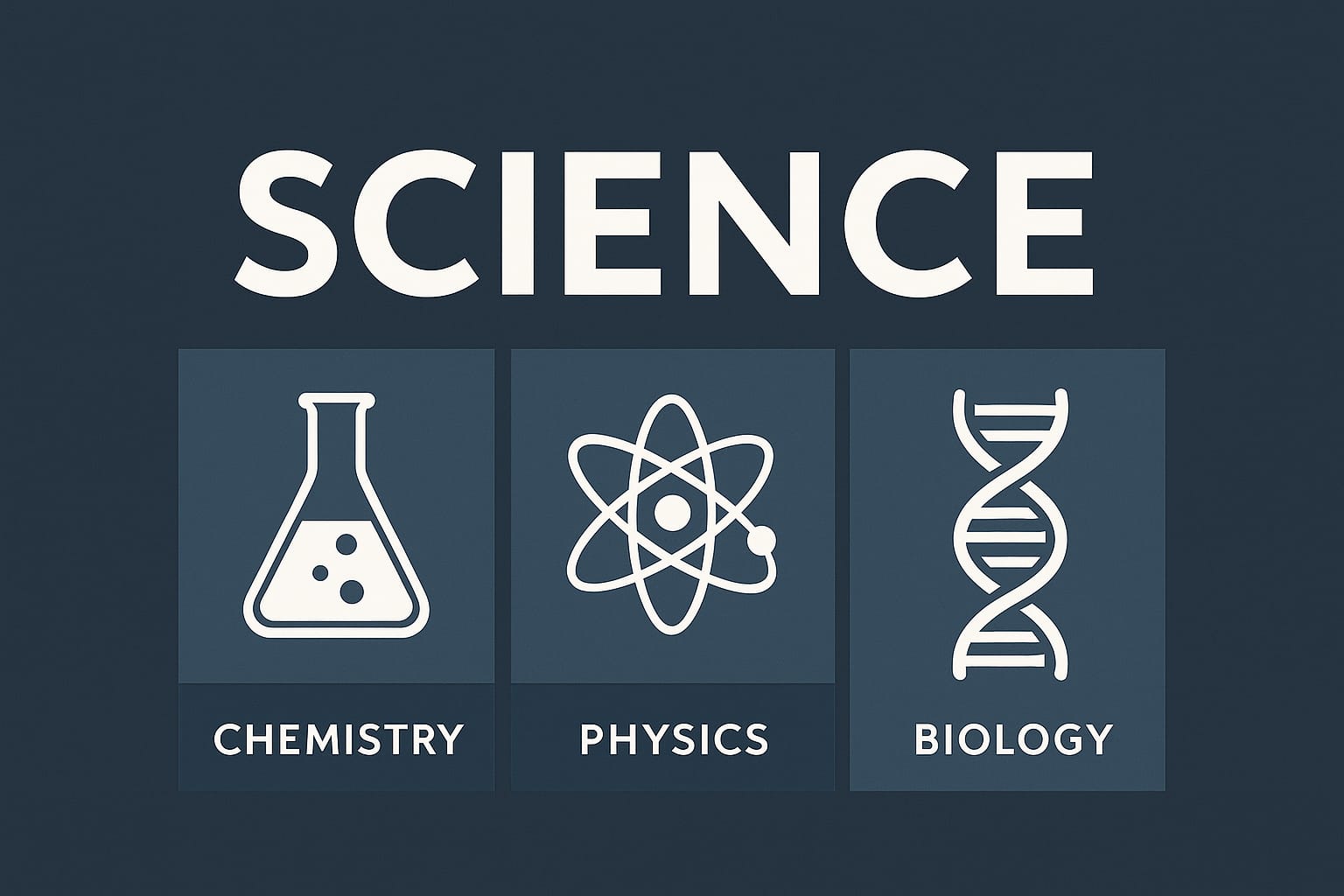
Education Ministry Weighs Concern Over Low Uptake in Sciences and Technical Fields
Education officials in Antigua and Barbuda are raising alarms over the low number of students pursuing science and technical subjects, despite strong pass rates in those areas.
Dr Myrick Smith, the local CXC registrar, said the issue could have long-term consequences for the country’s development if not addressed.
“Of the 1,409 students who wrote exams, 14% did biology, 9% did chemistry, 9% did physics. Are these numbers sufficient, or do we need to encourage our students to be taking the natural sciences a little more?” he asked.
By contrast, far larger numbers of students continue to choose business-related subjects, with 42% sitting Principles of Business and 29% taking Office Administration.
Technical and vocational education and training (TVET) subjects also show worrying declines, despite their consistently high pass rates. Building technology recorded a 90% pass rate, mechanical technology 95%, and electrical technology 85%, but fewer than 10% of students opted for each.
Dr Smith questioned why students were not choosing fields with clear employment opportunities. “We have record numbers of vehicles on our roads, don’t we? And they will be in need of repair. Auto mechanics is one of those areas that I think should offer lucrative employment,” he said. “Building construction is also an important pillar in our economy… shouldn’t we be guiding more of our young people into those subject areas?”
He warned that Antigua and Barbuda could face shortages of engineers, technicians and scientists in the coming years if the trend continues.
“As a nation, we need to ask whether we have enough persons doing these subject areas to ensure that, as we go further into the 21st century, we have enough of these people in our labour force,” he said.

To address the problem, Dr Smith suggested convening a national symposium involving government, educators, employers and trade groups to examine whether current subject choices align with the country’s future workforce needs.
“The economic pillars have shifted from natural resources to human resources — the ability to reason and apply science and technology. If that is the case, then of course a nation desirous of sustained development would be concerned about producing enough scientists, enough technicians, enough engineers,” he said.
The Ministry of Education is expected to review the data to consider strategies for encouraging greater uptake in STEM and technical subjects.
Advertise with the mоѕt vіѕіtеd nеwѕ ѕіtе іn Antigua!
We offer fully customizable and flexible digital marketing packages.
Contact us at [email protected]
















What symposium going to do?
Stop offering scholarships to party people to study social science.
Reserve the scholarships base solely on merit for those pursuing at lease 3 science courses.
We know what are the problems. Symposiums in this case is to white wash the problem.
Mr Smith, if you and CSEC continue to offer the students those “thrashy” subjects that they feel they can pass without making much effort, what else do you expect? Remember, the gold standard is to rack up as many subjects as possible to get your face in the paper.
Have you ever thought of awarding the student with the best science and technical passes instead of the 21 and 23 passes?
Also now that you all have gutted the State College to get a large number of students to go down to Five Islands where they do not teach science nor technical subjects, what do you expect, Mr Smith?
Some of these students just barely pass (SBA helped) and you are sending them to university?
You all are playing the fool with our young people and their future.
I saw this news and felt motivated to write, even though I know my words are falling on deaf ears. It turns out that they’re now “alarmed” because there’s a very low percentage of students interested in science subjects. Let me tell you, my experience with my son was extremely negative regarding this issue. We practically had to force him to study for those famous CXC exams. His school was the first to show no interest in preparing their students for these exams. As an engineer, I had to dedicate my nights to reinforcing several subjects that I felt capable of helping him with, after coming home exhausted from work. He’s Cuban, and in Cuba, he was always the best in his class until he came here, where the lack of motivation destroyed him. Nevertheless, he passed 7 exams that we almost forced him to take because we assumed it would be useful for something. He barely studied and got two 1s, a 2, and three 3s. Imagine if he had shown even a minimum of interest!!!
Great, he passed his exams, got his grades, and now what? All study options here are extremely expensive and scarce. We saw an ad for scholarships offered by the Serbian government, supported by the Prime Minister’s office, announcing the possibility of a scholarship in that country. We immediately gathered all the required documents and went to the Prime Minister’s office to clarify some doubts with a responsible official. After not receiving the expected treatment, we were attended to by a different official who wasn’t in charge of that department but accepted our documents. We gave them our email address, and they told us to wait. That was mid-July. Mid-August, we went back to get an update, but we got the same response: “You have to keep waiting” (a famous phrase used here in Antigua when they don’t feel like working). Now, I call for reflection: do you think, with this panorama, this unchecked lack of interest, any teenager formed in Antigua will have the desire to study??????
Children these days lack motivation to study – it’s a worldwide phenomenon. There are probably many factors affecting that from online media videos and shorts denigrating education to increased levels of comfort compared to past generations so they don’t feel as compelled to work hard to global turmoil making the future uncertain and pathways less clear. Parents definitely need to work alongside their kids to keep them on the ball to some extent to try to bring out the best in them. If they are not certain what to do post graduation they can perhaps work for a while, and save a few dollars and then study more later after finding their passion.
Not a problem folks! It’s now all about AI( aye eye). Lord help us. Even down at UWI we hear so much about this to the point where some feel there will never be a need for basic learning!
I recall from PMS in the 70s, when it was felt that if a student could not pass the expected subjects as outlined above, there were placed in what we called in scorn -BZ. It was in fact Business Education and played a great part in our working life but no student wanted to go there! It was a last resort. Fast forward to today’s revelation and tell me we have not lost our way?
We have another tragedy coming at ABIIT which was established under the late Mr Gladwin Henry to be an IT school with it’s aim to develop solutions for our nations development. Now that too will be more BZ focused and little if any IT under this new ABCAS.
Yes folks it seems like from top to bottom we have thrown up our hands in this country and decide to just lower our standards in all areas and let whatever happens to us, just happen.
Difficult to comment without further statistical information about job sectors current and planned in this country. Do the subjects that the students study match the work offerings in the country? If so then it doesn’t really matter if only a small percentage take technical subjects. On the other hand if we would like to further develop these sectors then we perhaps need a more wholeistic approach than just expecting students to magically know which areas are preferred or will be supported. E.g. I would love to see more young persons enter construction – starting housing companies etc. rather than become engaged in crime and violence but this would require BOTH technical AND business knowledge so programmes that encourage persons to study BOTH areas might be helpful. Otherwise, teamwork is needed between business graduates and technical graduates to start useful businesses in these sectors otherwise grads will just seek employment in preexisting businesses. So, to expand the technical entrepreneurship, perhaps some helpful incubator programmes could be established and given funding encouraging TEAMS of different graduates to work together to expand these technical businesses that will help develop the country in useful ways. Students in school could also be encouraged to team up with others studying different fields on projects so they become accustomed to such teamwork. Too often people start businesses alone limiting what can be achieved. Teamwork can make the dream work.
We the adults need to first figure out what is really needed for development. Throwing IT (or now AI) at everything does not equate to development. We need persons trained technically to maintain our water systems, agricultural or healthy, traditional food production systems (some technology is helpful to counteract problems and increase production but not too much in the unnatural food direction), housing systems (we need lots of climate resistant housing asap but not with unhealthy materials), other infrastructure systems such as roadways etc. We need to complete basic development before we think about getting too much into high tech living. So, we should assess where workers are needed and nudge students in those directions by providing information, scholarships, business funding etc. as incentives. We still need business workers in these areas as well though so it’s not really a competition but if we need more students in those areas then we should just direct them that way. Also, for those wishing to migrate, having technical skills and subjects that other countries want allows for more hassle-free legal immigration opportunities.
Comments are closed.